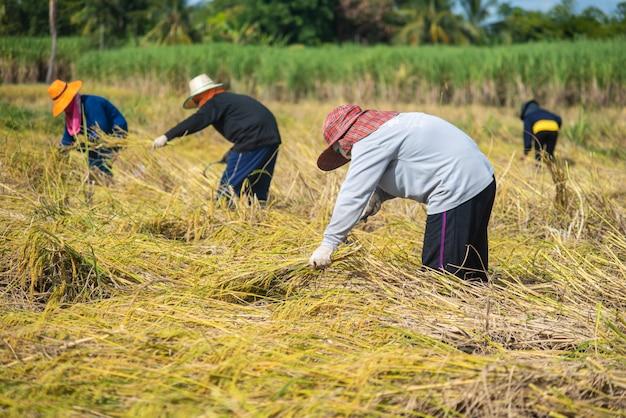Field work is an essential aspect of various disciplines, including education, research, and social sciences. It involves firsthand experiences and observations in real-life settings, enabling researchers or students to gather authentic data and insights. In this blog post, we will delve into the meaning of field work and its significance in different contexts.
At its core, field work refers to the practical activities conducted outside of controlled environments like classrooms or laboratories. It allows individuals to explore and understand phenomena in their natural habitats, which cannot be fully grasped through theories or secondary sources alone. Whether it’s studying wildlife behaviors, conducting social surveys, or observing educational practices, field work provides a unique perspective that enriches our knowledge and yields valuable outcomes.
Join me as we uncover the advantages of field work, explore the process of conducting field observations, discover the significance of field notes, and much more! Whether you’re a student preparing for your first field trip or a researcher looking to expand your fieldwork techniques, this blog post will equip you with the necessary insights to make the most out of your field work endeavors in 2023 and beyond.

What is Field Work?
Field work is not just a fancy term scientists and researchers throw around to sound important. It’s not about going out into a grassy field with a baseball glove and hoping to catch a fly ball either (although that does sound like a fun way to spend an afternoon). No, my dear readers, field work is a whole different ball game. Pun intended.
Understanding the Basics
First of all, let’s get one thing straight. Field work has nothing to do with farming, planting crops, or growing delicious vegetables (although those are important too). Instead, field work refers to the hands-on, boots-on-the-ground, get-your-hands-dirty kind of work that scientists, researchers, and explorers undertake to gather data, conduct experiments, and unravel the mysteries of the world around us.
Exploring the Great Outdoors
Field work is all about braving the elements and immersing oneself in nature’s finest. Picture this: a scientist venturing deep into the dense rainforests of the Amazon, armed with a notebook, a magnifying glass, and maybe even a khaki hat (because let’s face it, khaki is the unofficial uniform of all field scientists). They might be studying tropical flora, discovering new insect species, or simply trying to decipher the languages of parrots (because, hey, someone’s gotta do it).
The Trials and Tribulations
But field work is not for the fainthearted. It’s like going on an adventure without a map, where the unexpected is just waiting to surprise you around every corner. Field scientists face challenges like dodging carnivorous plants, wading through waist-deep swamps, and dealing with the constant threat of mosquitoes (seriously, can someone invent a mosquito-repellent force field already?).
Collecting Data like a Pro
While the idea of field work may bring to mind images of Indiana Jones-style adventures, the reality is that it’s a lot more systematic and meticulous. Scientists need to carefully plan their experiments, record observations, and collect data with precision. Every sample, every measurement, every note becomes a piece of the puzzle that helps us better understand the world we live in.
From Field to Lab
Once the field work is done, it’s not time to kick back and relax just yet. Scientists must return to the lab to analyze their findings, crunch numbers, and draw conclusions. The data collected during field work is like a treasure trove of information, waiting to be unlocked and shared with the world. And let’s not forget the paperwork. Oh, the endless paperwork.
Learning from Nature
Field work is not just about generating data and expanding human knowledge. It’s also about fostering a deep appreciation for the natural world. Working in the field allows scientists to witness firsthand the intricate web of life, the delicate balance of ecosystems, and the sheer beauty of the planet we call home. It’s a humbling experience that reminds us of our responsibility to protect and preserve the environment for future generations.
So, the next time you hear someone talking about field work, don’t picture a bunch of scientists playing catch in a sunny meadow. Instead, imagine them venturing into the unknown, facing challenges head-on, and unraveling the mysteries of our fascinating world. It’s a tough job, but someone’s gotta do it. And that someone might just be wearing a khaki hat.

FAQ: What is the meaning of field work?
What are the advantages of field work
Field work offers numerous advantages that make it a valuable research method. Some of the main advantages include:
1. Real-world experience
Field work allows researchers to directly observe and experience the subject of their study in its natural environment. This hands-on experience provides a deeper understanding and insight that cannot be gained through theoretical analysis alone.
2. Rich data collection
Engaging in field work allows researchers to collect rich and authentic data by interacting with the subject of study directly. This can include interviews, surveys, participant observation, and ethnographic research, among other methods.
3. Contextual understanding
Field work enables researchers to understand and appreciate the context in which the subject of study exists. This contextual understanding is crucial for drawing accurate conclusions and making informed decisions based on the research findings.
How do you write a field diary
Writing a field diary is an essential part of field work, as it helps researchers record their observations, thoughts, and reflections. Here are some tips to write an effective field diary:
1. Be consistent
Set aside dedicated time each day to write in your field diary. Consistency will help you capture accurate and detailed information about your experiences.
2. Use vivid descriptions
Describe your environment, events, and people with vivid details to bring your observations to life. This will help you later when analyzing your data or sharing your findings with others.
3. Reflect on your experiences
Take time to reflect on your experiences and record your thoughts and emotions. Reflective entries can provide valuable insights into the research process and help you uncover new perspectives.
What is the meaning of field work
Field work refers to the practical and hands-on research conducted outside the confines of a laboratory or academic setting. It involves going out into the field to observe, collect data, and study a subject of interest in its natural environment. Field work is prevalent in various disciplines, including anthropology, geography, ecology, and social sciences.
What is Field Notes and why is it important
Field Notes are written records taken by researchers during field work to document their observations, thoughts, and findings. They serve as a primary source of information and an important tool for analysis. Here’s why Field Notes are crucial:
1. Accurate documentation
Field Notes ensure accurate documentation of data, facts, and observations in real-time. They capture important details that may fade from memory over time, providing a reliable and authentic record of the research.
2. Analysis and interpretation
Field Notes form the foundation for analysis and interpretation. Researchers can draw upon these detailed records to gain insights, identify patterns, and develop theories based on their observations.
3. Research transparency and reproducibility
Field Notes promote research transparency and enable the replication of studies. Other researchers can refer to these records to validate findings or build upon existing research, ensuring the credibility and robustness of scientific inquiry.
Is a court hearing a secondary source
No, a court hearing is not considered a secondary source. A secondary source refers to information or data that is derived from primary sources, such as books, journals, or research articles. While court hearings may contain useful information for research, they are typically categorized as primary sources, as they provide firsthand accounts of legal proceedings and events.
How do you do field work
Conducting effective field work requires careful planning and execution. Here are the key steps involved in carrying out field work:
1. Define research objectives
Clearly define the research objectives to focus your field work efforts and determine the specific information you need to collect.
2. Plan logistics
Make necessary arrangements for travel, accommodations, equipment, and any required permissions or permits. Ensure that you have all the resources needed to conduct your research in the field.
3. Collect data
Use appropriate methods such as interviews, surveys, observations, or experiments to collect data from the field. Be diligent in recording your findings accurately and systematically.
4. Analyze and interpret data
Once you have collected the necessary data, analyze and interpret it to draw meaningful conclusions. Use appropriate statistical or qualitative analysis techniques, depending on the nature of your research.
5. Communicate findings
Share your findings through research papers, presentations, or articles. Contribute to the existing body of knowledge in your field and engage in academic discussions to broaden understanding.
What is field work in education
In the context of education, field work refers to the practical or hands-on learning experiences that take place outside the classroom. It involves students going into the field to apply theoretical knowledge, engage in experiential learning, and gain insights from real-life situations. Field work in education helps students connect theory with practice, develop practical skills, and deepen their understanding of academic concepts.
How do you prepare for fieldwork
Preparation is crucial for successful field work. Here are some steps to help you get ready:
1. Research your subject
Thoroughly understand your subject of study, including its background, existing research, and relevant theories. This knowledge will guide your research and ensure that you ask meaningful questions during data collection.
2. Plan your logistics
Make a detailed plan for your field work, including travel arrangements, accommodation, equipment, and any necessary permissions or ethical considerations. Adequate preparation will minimize disruptions during your research.
3. Review methodologies
Familiarize yourself with the methodologies and research techniques specific to your field. This will help you choose the most appropriate methods for data collection and ensure you have the necessary skills and tools.
4. Anticipate challenges
Identify potential challenges you may face during field work and develop contingency plans to mitigate them. This might include having backup equipment, accounting for weather conditions, or considering safety measures.
What are field observations
Field observations involve direct and systematic observations of people, environments, or events in their natural settings. Here are some key aspects related to field observations:
1. Purposeful observation
Researchers carefully observe and record specific aspects or behaviors related to their research objectives. This purposeful observation helps gather relevant data without unnecessary distractions.
2. Non-participant or participant observation
Field observations can be conducted as non-participant (observing without participating) or participant (actively engaging in the observed activities). The choice depends on the research goals and ethical considerations.
3. Data collection techniques
Researchers employ various techniques during field observations, such as note-taking, video or audio recordings, photographs, or sketches. These techniques support accurate data collection and subsequent analysis.
What is the meaning of field of study
The term “field of study” refers to a specific academic discipline or area of knowledge in which researchers, students, or professionals specialize. It encompasses a set of theories, principles, methods, and practices that define and guide research and learning in that particular domain. Examples of fields of study include biology, psychology, sociology, literature, and computer science.
Remember, field work isn’t just about conducting research. It’s an adventurous journey that takes you out of the comfort of your office or lab to explore the mysteries of the real world. So grab your gear, put on your explorer hat, and embark on your own field work expedition. Happy researching!
